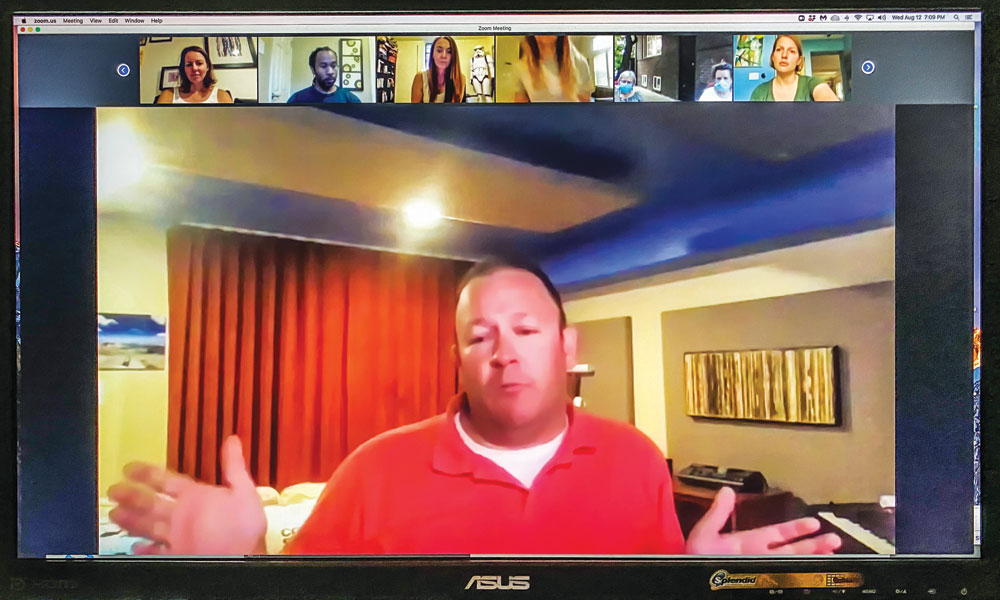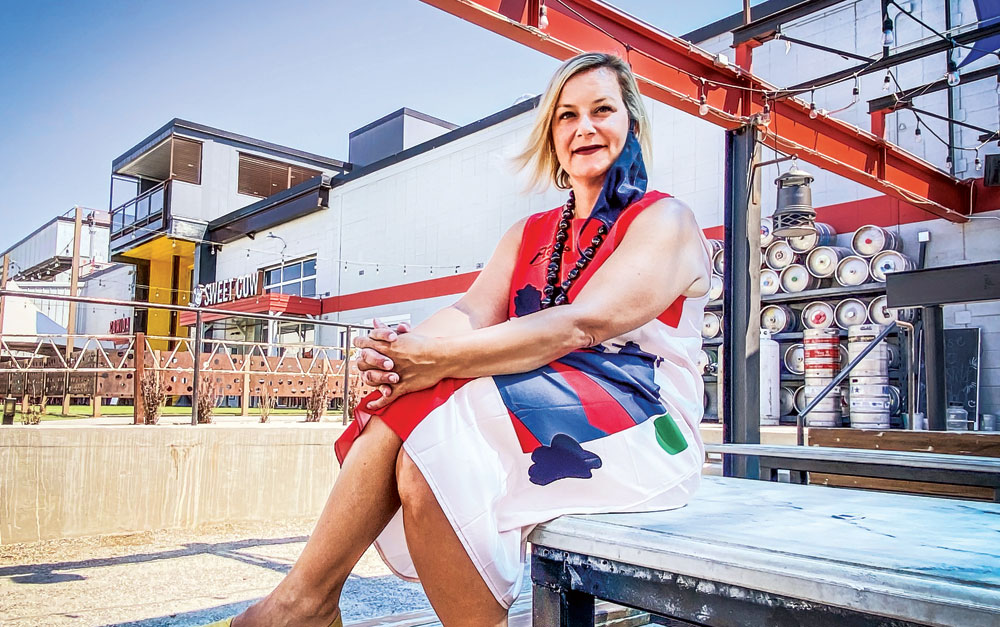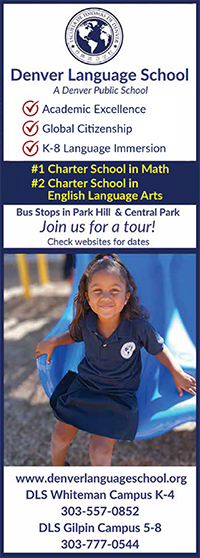
At an August Zoom meeting of Park Hill Neighbors for Equity in Education, chaired by Andrew Lefkowits, about 40 participants discussed concerns about pods and equity.
DPS has said that the earliest schools will resume in-person learning is October 18, but as parents well know, the district’s projections keep changing. For many, returning to in-school learning is unlikely due to health concerns or fear about the district’s capacity to keep their children safe. For others, hope for face-to-face learning is mixed with anxiety as families await information on DPS protocols, class sizes, and other guidelines.
For months, social media posts in neighborhood parent groups have been peppered with education concerns. “I don’t want my child to fall behind” is one theme. Others fear learning loss due to lack of access to the resources their children with special needs rely on. Another recurring conversation centers on forming pods. And some are questioning how pods might more deeply inscribe existing inequities in our already segregated communities and schools.

Skye Barker Maa is pictured at one of the outdoor locations at Stanley Marketplace that will be used for pods offered by Neighborhood Music.
Whereas Adams County 12 (about half the size of DPS) is organizing free pods for some of its elementary and middle school students, DPS has been largely silent on pods. The exception was a mid-August statement from the board urging parents to consider pods’ detrimental implications for public education. The board noted, “We fear that further flight will exacerbate academic and opportunity gaps among our children.” The statement urged families not to hire away teachers, paraprofessionals, and special service providers.
With no clear direction or action from DPS, however, it’s no wonder that parents are organizing pods. A pod is defined as a small face-to-face learning community that supports children’s academic and social needs and parents’ necessity to report to work. Beyond this common ground, pods vary greatly. Some parents or groups of parents are hiring tutors or certified teachers to oversee learning while others are forming cooperatives in which parents alternate days supervising remote learning and outdoor time.
Park Hill’s Neighbors for Equity in Education (PHNEE) has been working on equity since its founding in 2017. Recognizing the profound funding, academic, and social inequities across that neighborhood’s four elementary schools, PHNEE wants to identify grassroots solutions. In August, PHNEE hosted a Zoom meeting with about 40 parents and teachers to address pods and equity. PHNEE co-chair Andrew Lefkowits admits that forming equitable pods is “tricky.”
The pandemic is underlining longstanding gaps, says Lefkowits. “We’ve seen an increase in youth violence since it [the pandemic] happened. We’ve seen the impact of kids not having a place to be during the day, and the ongoing trauma of this moment—that everybody is suffering, but particularly the most vulnerable amongst us are suffering greatest. How do we create spaces to serve those individuals?”
Anticipating a need for creative support for students enrolled in on-line learning, a consortium of educators and advocates came together to form BoldEDU, which centers on “Learning Circles,” their term for pods. Seeking a comprehensive, whole-child approach at an accessible price point, BoldEDU’s Ulcca Joshi Hansen says, “It’s going to look different in every neighborhood, but we hope to empower communities.” A Montclair Park resident, Hansen hopes that as the semester progresses, DPS and the City of Denver will help make spaces such as schools and recreation centers available. For now, the group has confirmed two school-based partnerships: Valdez and Dora Moore. Learning Circles will meet in 5-week cycles at an average cost of $1,100 per student, with a sliding scale to ensure accessibility. Hansen says BoldEDU has applied for grants to help offset costs. Combining academic support, enrichment and wellness, the program lets gap year students and other community members serve as learning guides.
Another option for pods is being offered by Neighborhood Music at Stanley Marketplace, including mixed-grade-level pods for cohorts of ten students each from Swigert Elementary School (2-3 pods); Denver Language School (1 Mandarin pod); and Lowry Elementary (1 pod). At a cost of $300 per week per child, the pods will be a lifesaver for some and untenable for others, though built into the program are two full scholarships per pod. Those, Neighborhood Music owner Skye Barker Maa says, are almost gone. “We have a lot of families who are calling because they’re furloughed,” she says.
Lefkowits suggests that affluent and well-educated parents’ anxieties about their children falling behind may be overblown. “Standardized tests measure a very narrow part of what we want our kids to get from school. But even if that’s your primary concern, the contribution of schools to your kid’s standardized test score is maybe thirty percent. At least seventy percent of how your kid does on standardized tests is based on their home life or environment.”
Though Lefkowits is not advocating that parents let their kids become feral, he hopes that as people form pods, they reflect on the larger implications to public schools. Like the DPS board members, he fears that long-term, the pod movement could result in middle class and wealthier parents’ divestment from our public schools. Public education, however incorrectly, has long been viewed as the great equalizer. If more people leave the public schools, what becomes of our schools and the children whose families cannot afford to leave?
PHNEE and BoldEDU are working to identify learning sites and ask that community members with businesses or co-working spaces reach out. PHNEE is raising money to create spaces where kids can go during the day and receive support and supervision; to donate, select PHNEE-One Park Hill Fund at http://donate.dmci.network. To learn more, go to PHNEE.org. Parents interested in exploring BoldEDU’s Learning Circles can go to www.boldedu.org for more information. Contact Neighborhood Music at skye@neighborhoodmusicstanley.com.




0 Comments